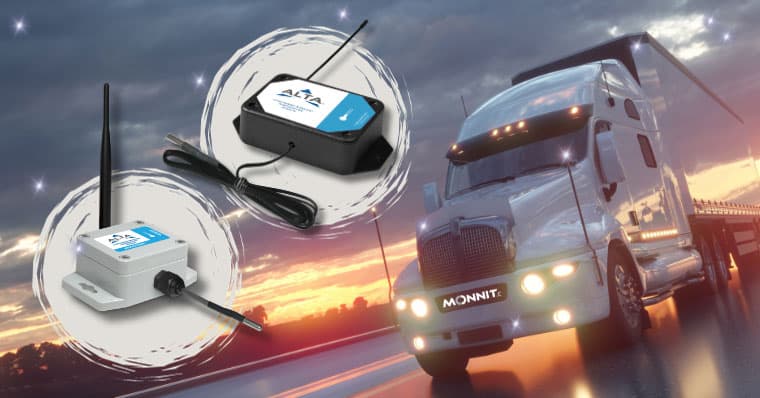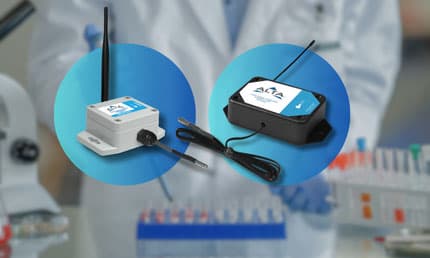The Certification Helps Food Services and Pharmaceutical Organizations Meet Temperature Data Logging Regulations
SALT LAKE CITY—January 10, 2024—Monnit announced today that its ALTA® Wireless Standard Enterprise and Industrial Temperature Sensors are now certified for Europe's EN12830 cold chain traceability standard.
The EN12830 certification supports monitoring and data-logging temperatures from -40°C to 85°C during transporting, storing, and distributing temperature-sensitive goods. Transporters and logistics managers, primarily in the food and pharmaceutical industries, can use our ALTA Standard Temperature Sensors to comply with EN12830 regulations.
Prevent Spoilage & Meet Safety Regulations
Maintaining temperatures in food and pharmaceutical cold chains is critical concerning the quality of goods. To ensure and prove that you keep food and pharma products at adequate temperatures in Europe and that you record these temperatures for continuous control purposes, you must meet the EN12830 standard.
This European regulation requires compliant sensors/recorders or data loggers. Our data-logging ALTA Temperature Sensors, ALTA® IoT Gateways, and iMonnit™ cloud-based software are used by businesses worldwide to accurately record, verify, and validate temperature wherever their perishable goods go.
The 2018 EN12830 standard specifies technical and functional characteristics that our ALTA Standard Temperature Sensors with three-foot leads must meet to monitor, and data log the condition of goods during transportation, storage, and distribution.
According to the EN12830 certificate, these sensors primarily comply with the following:
- Class 0.5 accuracy of +/- 0.5°C from -40°C to 50°C
- Class 1.0 accuracy of +/- 1°C from 50.1°C to 85°C
- Data-logging integrity, data traceability, and software data security specifications
- Autonomous operation and independent power supply
- Sensor housing durability and manufacturing requirements
The EN12830 certification is in addition to our National Institute of Standards and Technology (NIST) certification and Hazard Analysis and Critical Control Points (HACCP) and Title 21 Code of Federal Regulations (CFR) Part 11B compliance.

 iMonnit Portal
iMonnit Portal




